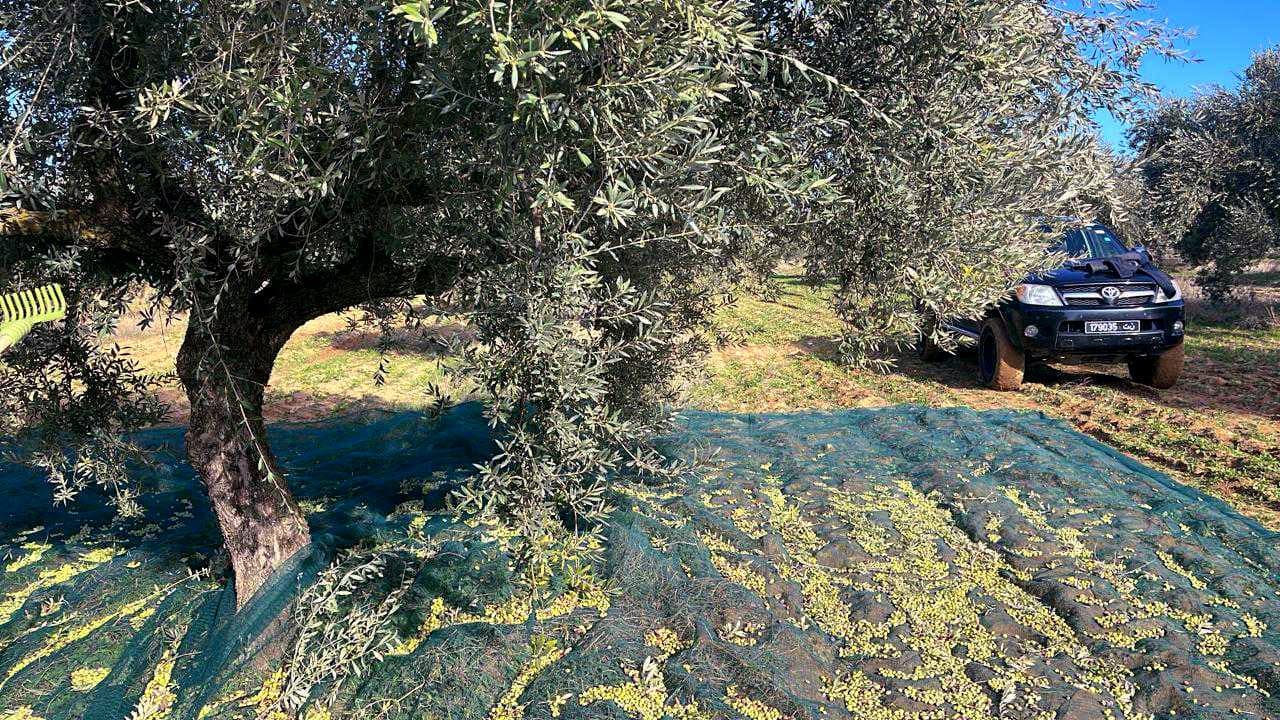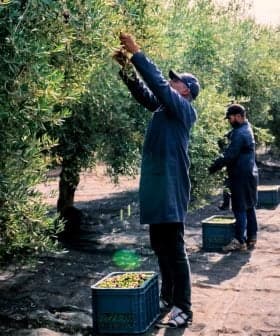Tunisian Ag Minister Urges Sector to Take Advantage of Bumper Harvest

Olive oil production in Tunisia reached 220,000 tons in the 2023/24 crop year, exceeding expectations and significantly surpassing last year’s yield. The increase in production is attributed to modernization efforts in the sector, with a focus on improving milling infrastructure and increasing exports of individually packaged extra virgin olive oil to new markets.
According to the Ministry of Agriculture, Water Resources and Fisheries, olive oil production in Tunisia reached 220,000 tons in the 2023/24 crop year.
Minister Abdelmonem Belati said producers overcame high temperatures and enduring drought to achieve a substantial production rebound, significantly exceeding last year’s yield of 180,000 tons but falling slightly below the five-year average.
Still, the strong crop exceeded initial expectations in October when producers and officials estimated production would reach 200,000 to 220,000 tons.
See Also:2023 Harvest UpdatesKarim Fitouri, the founder of Olivko, attributed the increase in production to the sector’s rapid modernization.
His five-year-old olive grove stretches across 40 hectares and comprises 146,000 olive trees planted at super-high density. Fitouri believes this is the future of Tunisian production.
“The aim is to produce more olives faster and with less exposure to climatic changes, unlike traditional methods,” he said, where yields can alternate from 20 to 100 percent from one year to the next.
Fitouri also pointed to government efforts to improve milling infrastructure, which allows producers to mill olives within two hours of the harvest, which improves quality.
“Production in Tunisia has become more sophisticated,” he said. “It is up to date. There are more than 1,700 mills in the country, most of which have the latest technology, and traditional mills are becoming less prevalent.”
“Some of these mills are large enough to hold a daily capacity of around 1,000 tons,” Fitouri added. “There’s been a huge change in the sector in the past five years.”
With the harvest completed, Belati urges the rest of the sector to mobilize to take advantage of high olive oil prices and export the new batches of extra virgin olive oil as quickly as possible.
According to Tunisia’s National Observatory of Agriculture (Onagri), annual olive oil exports nearly doubled from the 12 months ending February 2024 compared to the year before. They represented 64 percent of all agricultural exports.
“The recorded decline in the national budget deficit is essentially the result of the increase in olive oil exports,” the report said.
Belati’s efforts are part of a broader scheme from officials and producers to increase exports of individually packaged bottles of extra virgin olive oil and shift away from the prevailing paradigm of exporting in bulk to the European Union.
However, Fitouri believes that the lack of recognition from international consumers remains a significant impediment to achieving this goal.
He believes producers must exploit the country’s role as the world’s largest organic olive oil producer to catch the imagination of consumers in the lucrative North American and East Asian markets.
“Tunisia is getting there,” he said. “It needs to have the vision to promote itself through greater investment in packaging and marketing to showcase the soil, variety and ancient trees.”
“Improving the image and place of olive oil within Tunisia could benefit the entire country, whereas exporting oil cheaply to Europe, which then gets bottled and sold as a ‘European blend,’ benefits very few people,” Fitouri concluded.









